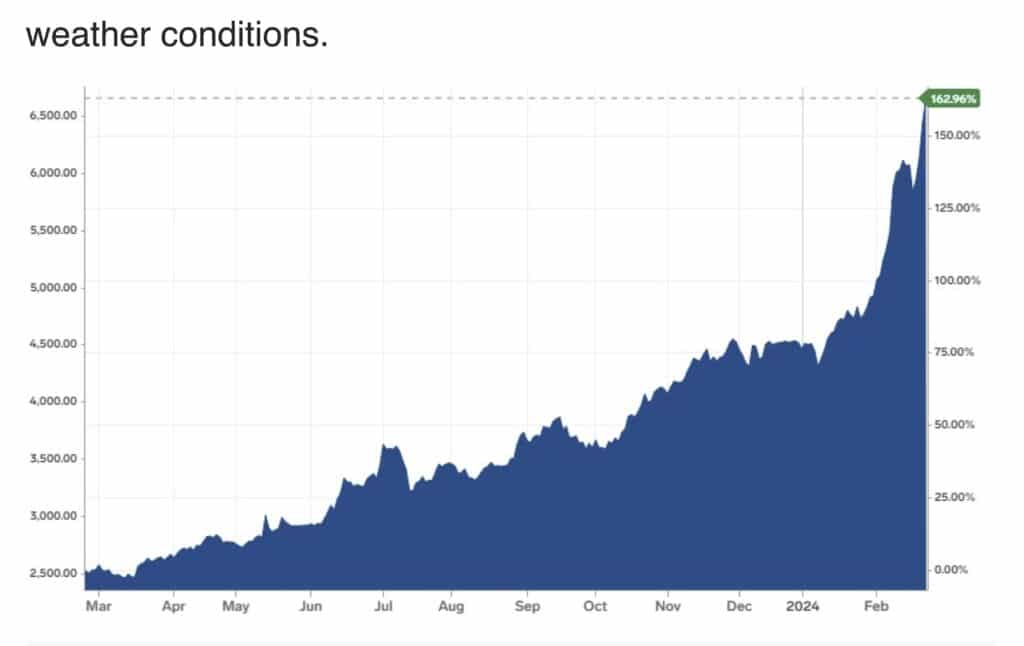The cost of chocolate is going to increase dramatically, with record-high cocoa prices starting to curb global demand.
The price of cocoa has been on the rise owing to the issues faced by major exporters in terms of production and export volume. These issues include smuggling and adverse weather conditions.
Cocoa prices over the past year. Graph: Market Insider

Poor crop growth and disease in West Africa have lowered cocoa production and driven up prices. This has led to concerns that current production levels may not be enough to avoid a global cocoa shortage.
For example, cocoa production in the Ivory Coast, the world’s largest producer, has decreased by 33% year-on-year.
The seasonal Harmattan winds and insufficient rain in West Africa are causing damage to cocoa fields, further worsening the situation. To assess the expected cocoa production, the Ivory Coast cocoa regulator, Le Conseil Cafe-Cacao, has halted forward cocoa sales for the 2024/25 season, adding to concerns about the region’s cocoa supply.
Ghana is the world’s second-largest cocoa producer; however, the Ghana Cocoa Board has reduced its cocoa production estimate for 2023/24 to 650,000-700,000 MT, which is the lowest in 14 years. Earlier, the estimate was 850,000 MT.
The reasons for this reduction are smuggling and bad weather. According to Ghana’s cocoa regulator, some cocoa farmers are unlikely to fulfil their cocoa contracts for a second season.
As a result, South Africa’s largest chocolate manufacturer, Mondelēz South Africa, makers of Cadbury’s chocolates, recently said that it was planning on implementing more price hikes to cover the record-setting surge in cocoa prices – even as inflation-hit consumers curb their purchases. This has adversely affected the company’s profits.
[Photo: Kier in Sight ArchivesHire for Unsplash]


